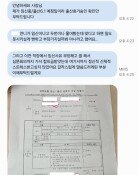[Editorial] A Rocky Start for the Truth and Reconciliation Committee
[Editorial] A Rocky Start for the Truth and Reconciliation Committee
Posted December. 01, 2005 03:22,
The survey conducted by the committee for commemorative projects of the 60th anniversary of the national liberation, which is directly supervised by the prime minister indicated that 77 percent of the respondents place more emphasis on the social stability than the clarification of the past. The results have shown that the vast majority of Koreans have concerns about the possible negative fallout and the historical fallacy of the Roh administrations persistent efforts to clarify the past.
A closer look at the line-up of the committee on clarification of the past to pursue truth and reconciliation, which was launched today, reveals that peoples concerns are highly likely to become reality. In the 15-member committee, eight highly influential posts, including the chair and senior positions, are filled with members recommended by President Roh and the ruling party. They share common historical perspectives with the administration: justice has failed and opportunism has prevailed throughout the nations history. They share extremely lopsided historical views, even dismissing the nations great achievement in rising to become the worlds 11th largest economy.
The committee will exert overwhelming power. Committee members have the authority to launch investigation into the cases on which final court rulings have already been made. And the conclusions they will reach on past incidents will be reflected in laws, regulations, policies, and history textbooks. Conclusions will be drawn by the majority support of the committee members. That is to say, if eight members recommended by the president and the ruling party share the same opinion, the other seven members wont get a chance to make their voices heard.
Father Song Gi-in, who has been appointed as the committees chairman, is famous as the spiritual mentor for President Roh. He sees Korean society as a society of confrontation between the privileged and the underprivileged. Kim Dong-choon, a senior member and Sung Kong Hoe University professor, argued in the World Korean Forum in August: In modern Korean history, dishonest people in power wiped out honest and good people, distorted history, and manipulated peoples memories. His historical perspectives flatly deny the authenticity of the past Korean governments and undermine the achievement of the so-called miracle on the Han-River. Ahn Byung-wook, a Catholic University professor and another member recommended by the president, characterized the nations modern history as the history of heavy reliance on the U.S., saying, Korean elite group believed that following the U.S. governments directions was the easiest way to run a country.
It is not so hard to imagine how the committee will define the hundred years of the nations modern history since Japanese colonial rule until the sixth republic of Korea. And the day will come when our descendents will have to re-clarify the past that was clarified by the committee for four to six years. Koreans are concerned that their efforts will waste national energy and do harm to the nation. It is regretful that the Roh administration has learned nothing from the well-known fact that the administrations that abuse history for political means have never been evaluated favorably in world history.
Headline News
- N. Korea launches cyberattacks on S. Korea's defense companies
- Major university hospital professors consider a day off each week
- Italy suffers from fiscal deficits from ‘Super Bonus’ scheme
- Inter Milan secures 20th Serie A title, surpassing AC Milan
- Ruling and opposition prioritize spending amid tax revenue shortfalls







